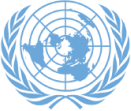Mr. Chairman,
My delegation associates itself with the statements made by the distinguished representatives of South Africa on behalf of the Group of 77 and China as well as of Zambia on behalf of the Group of LLDCs.
I also wish to thank the Secretary General for his reports on Agenda item 18. My delegation would like to highlight a few points on Agenda Item 18 with the specific focus on sub-items international trade and development, external debt sustainability and development, and commodities.
Mr. Chairman,
International trade is an important enabler for achieving sustainable development. High transport and trade transaction costs remain a major stumbling block in the pursuit of LLDCs to achieve their trade potential. Most LLDCs including Mongolia continue facing 30-50% higher transport costs compared to representative coastal economies. Mongolia spends 6.2% of its entire GDP for transportation costs only.
It is crucial to provide technical assistance to LLDCs to support their participation in trade negotiations. The effective participation of LLDCs in the multilateral trading system is fundamental. Therefore, my delegation is looking forward to the successful Ministerial Conference of the World Trade Organization (WTO) in Nairobi. We believe that the Conference will consider the important issues of trade and trade facilitation, including market access to developing countries, support of efforts made by LLCDs to promote a better integration and greater participation in bilateral and multilateral trading systems.
Debt matters concern many developing countries, including my own country. In Mongolia, sovereign debt has risen sharply, and bank vulnerabilities are growing. Today, sovereign debt has reached 58.3 per cent of GDP. My delegation welcomes the work carried out by the Ad Hoc Committee on Debt Restructuring Mechanism and the GA Resolution 69/319 on the Basic Principles on Sovereign Debt Restructuring Processes.
Mr. Chairman,
For the last decade Mongolia has experienced steadfast growth in the mining sector, the economy grew more dependent on a few commodity exports and became more vulnerable to fluctuations in prices on international markets. This lack of diversification has made the economy prone to repeated boom-bust cycles. Today a major policy goal for my Government is to diversify the economy through further integration with international markets and improvement of resource utilization efficiency.
The rise of the mining sector in Mongolia has come at the cost of social and environmental dimensions of sustainable development. Our past experience proves that it is not an easy task for a developing country with transition economy to achieve the goal to reduce poverty. Whether the country can translate the mining development into a better livelihood for all citizens remains a big challenge.
Mr. Chairman,
In conclusion, my delegation fully supports holding a High-level Dialogue on Commodity Markets during the first half of 2017, at United Nations Headquarters, in New York, which will provide an opportunity to discuss on an intergrated approach to capture the multidimensional nature of the issues and to involve the variety of stakeholders.
I thank you.


